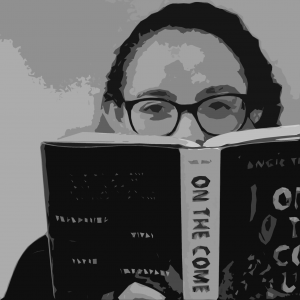By: Octavia Butler
This book was highlighted by an event held by Harriet’s Bookshop, and so I bought a copy ahead of the event, and read it shortly thereafter. I am not a huge fantasy fan. Harry Potter is definitely my largest exception to this genre-specific preference. That being said, I resonated with this book for a couple of reasons. First, I began this book in the month leading up to the 2020 Presidential Election, when chaos reigned throughout the land. I was 97% sure that Civil War was an inevitable and imminent threat, and that between the pandemic and the war, we would require the knowledge to survive on our own in the wilderness. I also undertook a week long pilgrimage to walk the boundary of our city (and wow, what an experience!). All of these factors made Parable of the Sower feel more like an instruction manual than an actual novel — but in a good way.
The dystopian world in which this novel is based, is not out of the realm of possibilities. In fact, it seems like the most likely to happen within the timeframe described (2024) than any of the dystopian novels that I have read in recent years. Money means nothing and everything, so that the top 1% of folks who have it look absolutely nothing like the other 99%. There are tiers of poverty, of course, and Lauren (our main character) would be considered to be living a middle class existence. Yet, everything costs way more money than any of the people in her community earn. Jobs are few and far between, so those who are employed have no leverage to advocate for better conditions. And violence and crime are out of control rampant in every corner of the world.
After the violent slaughter of her family, Lauren is thrust into the company of two people from her home community who she barely knows, and they band together with the singular focus of escaping north to a better life. Along the way, they meet others and they learn who to trust in a landscape of untrustworthy folks.
As they journey together, Lauren also builds the foundation to her new spiritual belief system. One that is rooted in the truths that she observes in the world around her. Primarily, the premise surrounds the idea that “God is Change”.
The author made some decisions that I didn’t love – for example, Lauren’s romance made me super uncomfortable – but overall, this book is relevant and timely and I am glad that I read it.

